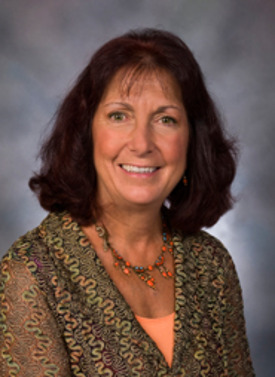Harnessing Big Data to Build Resilient Communities
Sallie Keller
Tuesday, 23 Feb 2016 at 7:30 pm – Alliant Energy-Lee Liu Auditorium, Howe Hall
Sallie Keller is a professor of statistics and director of the Social and Decision Analytics Lab at Virginia Tech University. She will discuss how communities can repurpose municipal and external data sources to support data-informed policy development. Keller has held faculty and administrative appointments at University of Waterloo in Ontario, Canada; Rice University; and Kansas State University. She has also served as director of the IDA Science and Technology Policy Institute in Washington DC, head of the statistical sciences group at Los Alamos National Laboratory, and program director at the National Science Foundation. Keller holds a PhD in statistics from Iowa State and is a recipient of the university's John V. Atanasoff Research and Discovery Award. Data-Driven Science Distinguished LectureSallie Keller has served as a member of the National Academy of Sciences Board on Mathematical Sciences and its Applications and the NAS Committee on National Statistics, and has chaired the NAS Committee on Applied and Theoretical Statistics. She is a national associate of the National Academy of Sciences, fellow of the American Association for the Advancement of Science, elected member of the International Statistics Institute, and member of the JASON advisory group. She is also a fellow and past president of the American Statistical Association.
Abstract
Imagine waking up in 25 years, what sort of community will you be living in? More importantly, in 25 years, what sort of community do you want to be living in? City and county governments strive to be responsive to residents, improve quality of life, determine what services are needed, and stimulate economic growth. During the course of administering these public services and allocating resources, an abundance of data is generated. The story of the community is in these data. Every community has a unique phenotype, a set of characteristics that are influenced by its environment and drive its evolutionary trajectory. This presentation will discuss fostering connections within the community to identify these unique characteristics with a focus on how to repurpose the various municipal and external data sources to support the community through data informed policy development.
Cosponsored By:
- Office of the Vice President for Research
- Committee on Lectures (funded by Student Government)
Stay for the entire event, including the brief question-and-answer session that follows the formal presentation. Most events run 75 minutes.
Sign-ins are after the event concludes. For lectures in the Memorial Union, go to the information desk in the Main Lounge. In other academic buildings, look for signage outside the auditorium.
Lecture Etiquette
- Stay for the entire lecture and the brief audience Q&A. If a student needs to leave early, he or she should sit near the back and exit discreetly.
- Do not bring food or uncovered drinks into the lecture.
- Check with Lectures staff before taking photographs or recording any portion of the event. There are often restrictions. Cell phones, tablets and laptops may be used to take notes or for class assignments.
- Keep questions or comments brief and concise to allow as many as possible.



